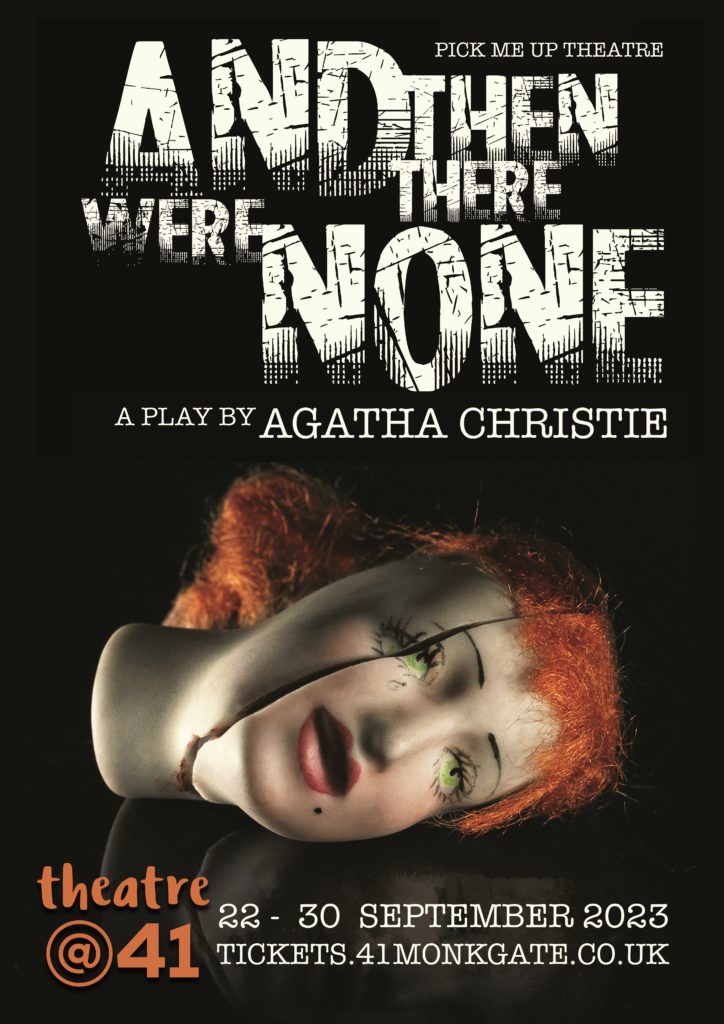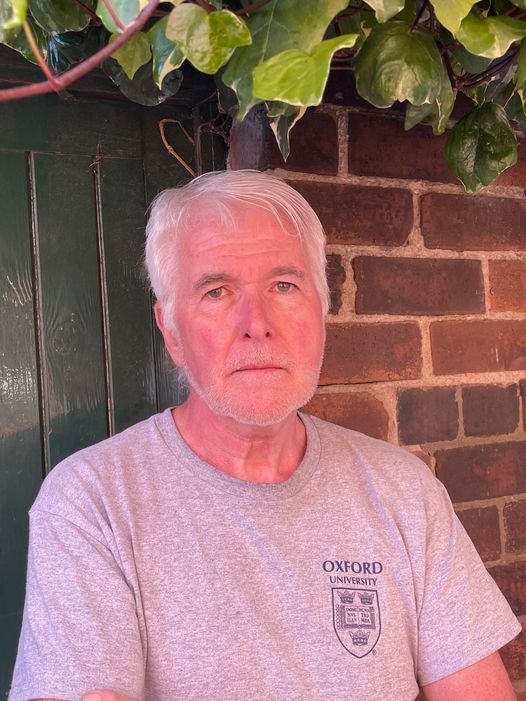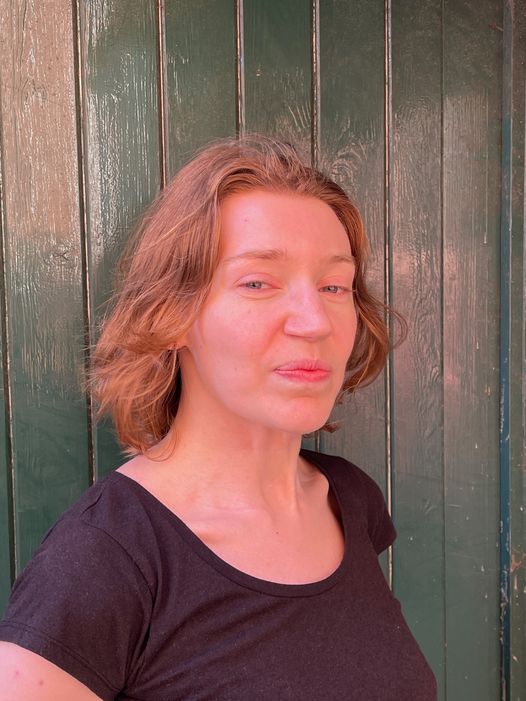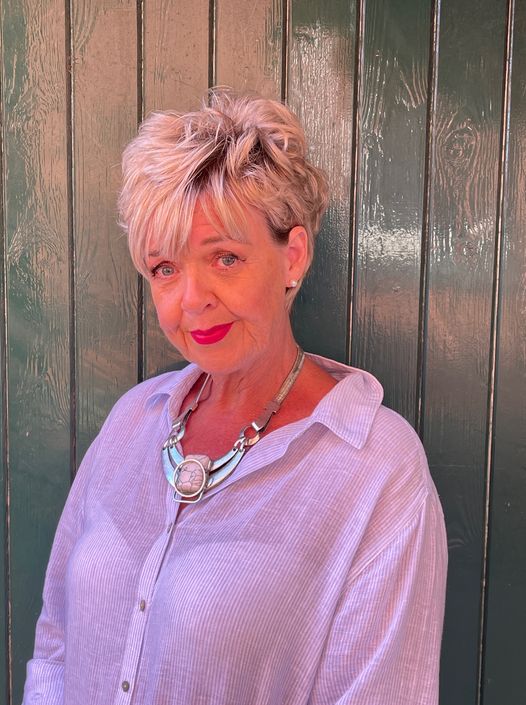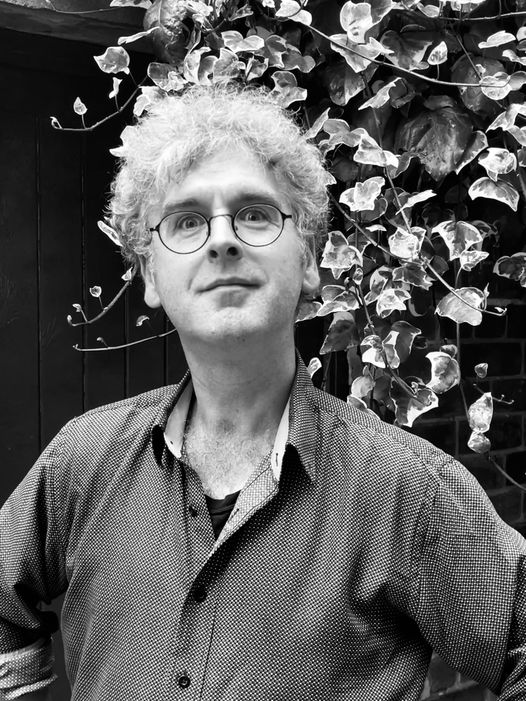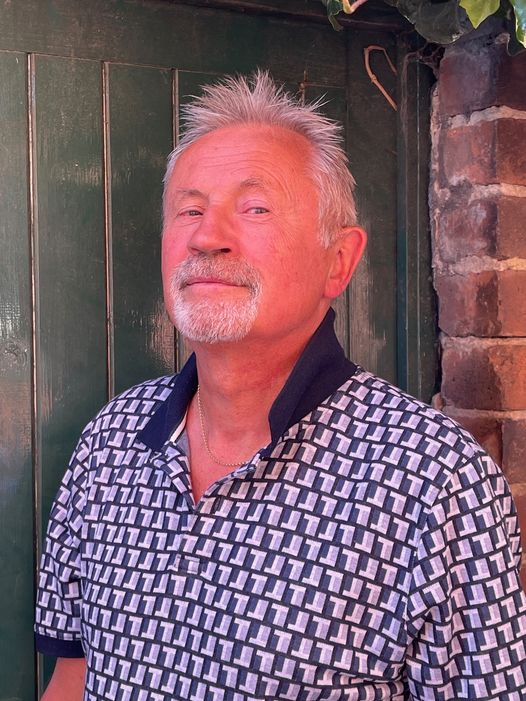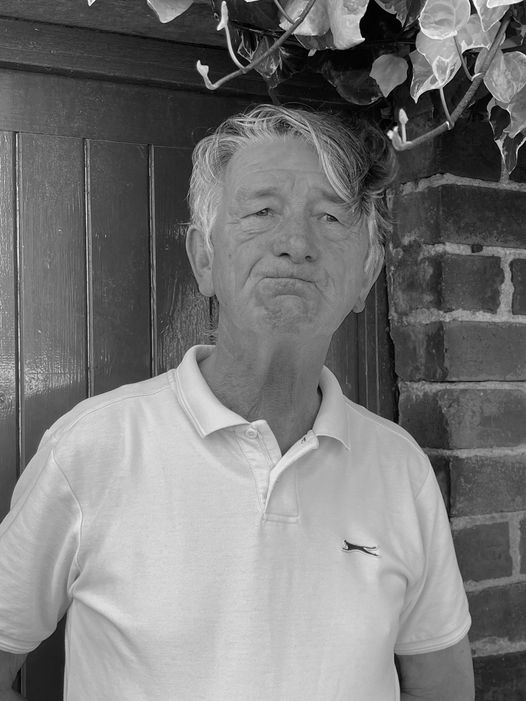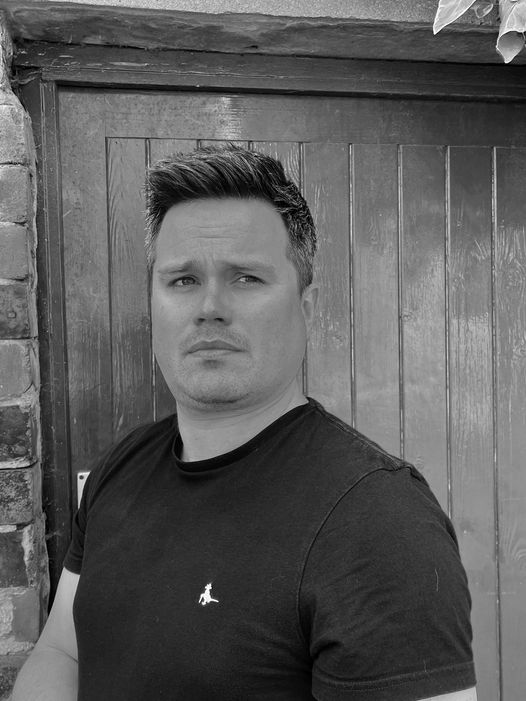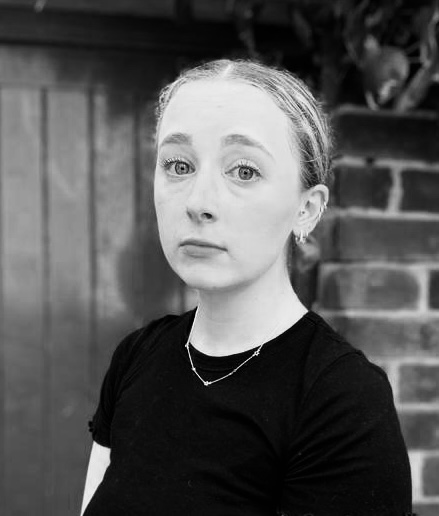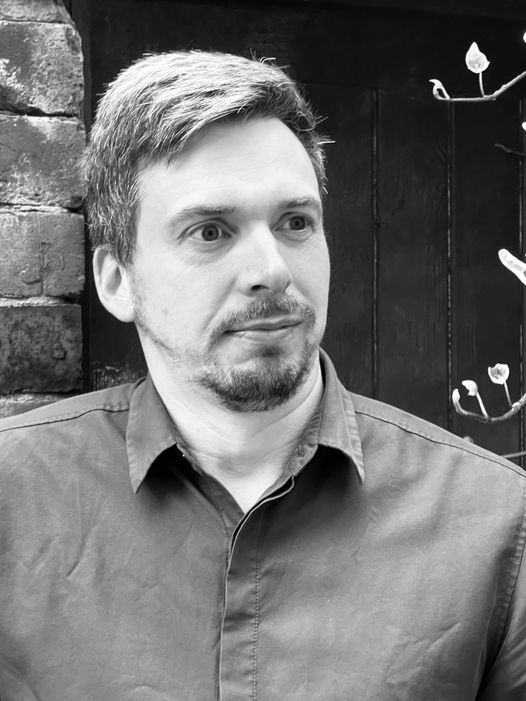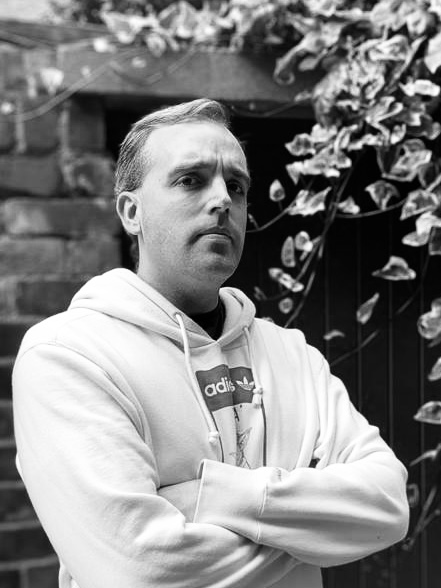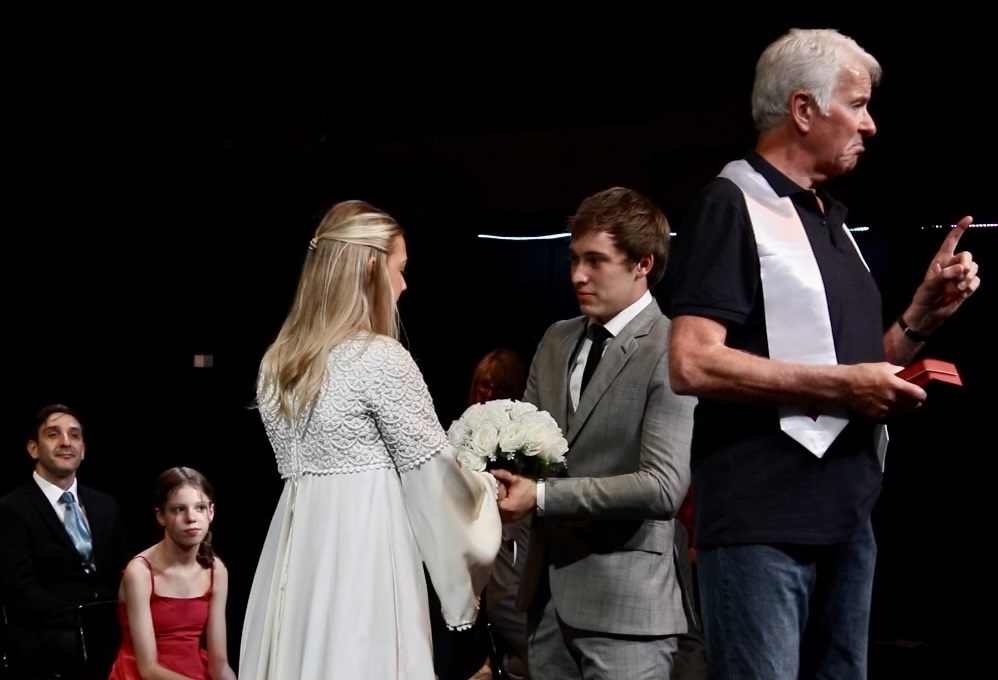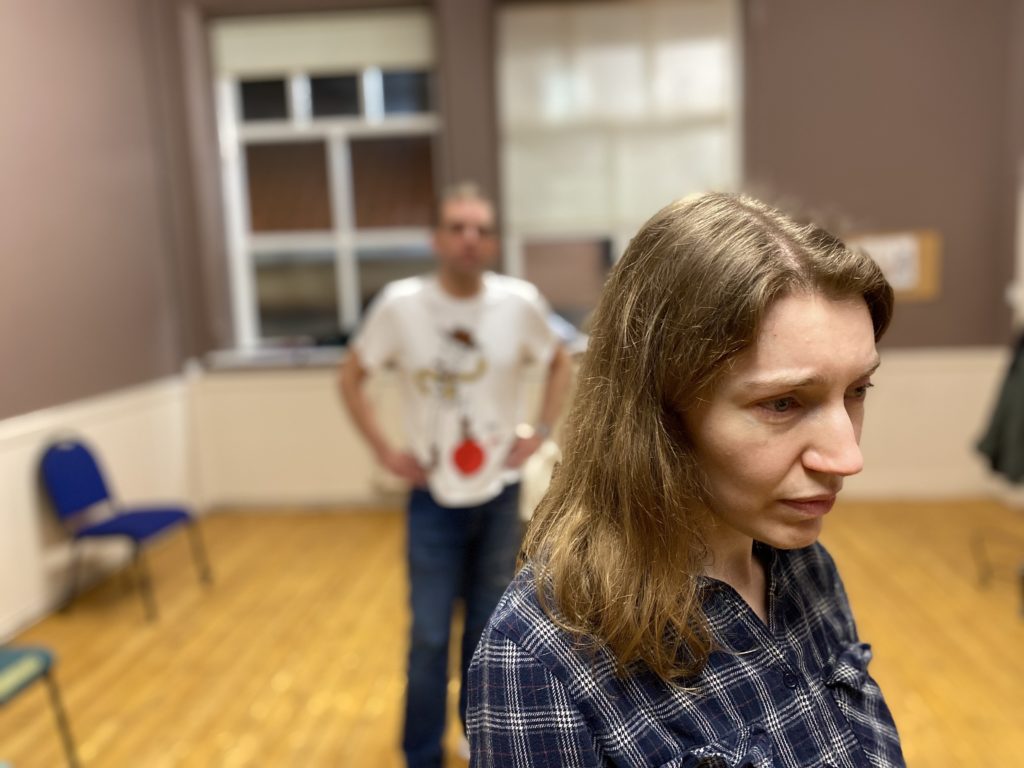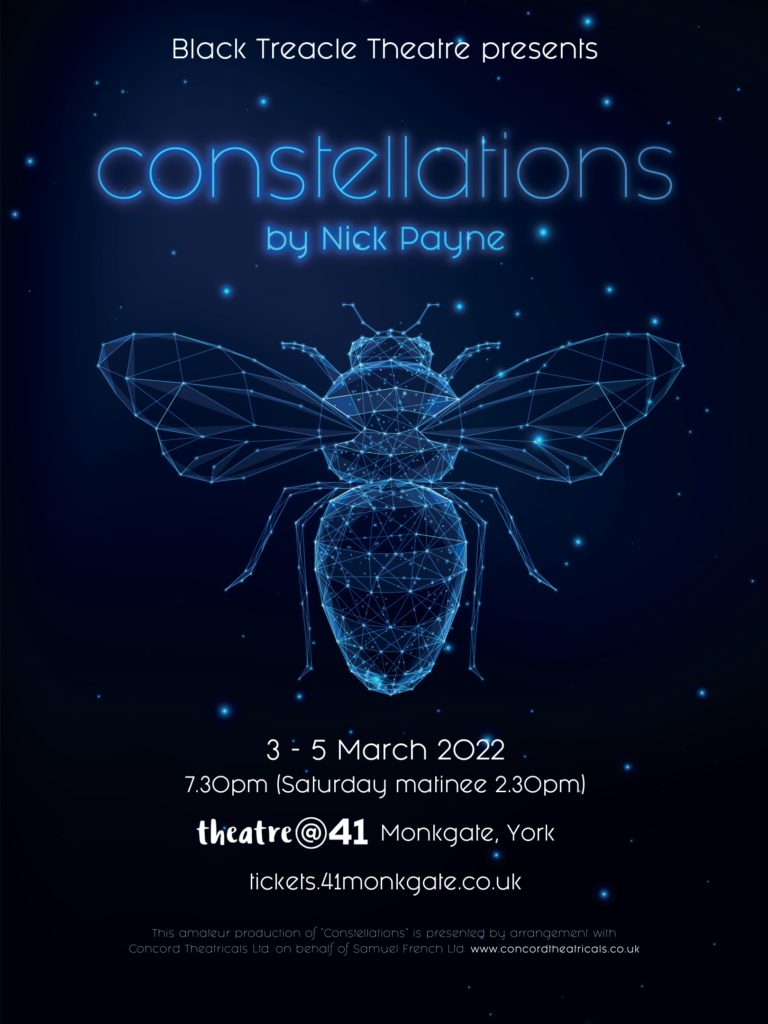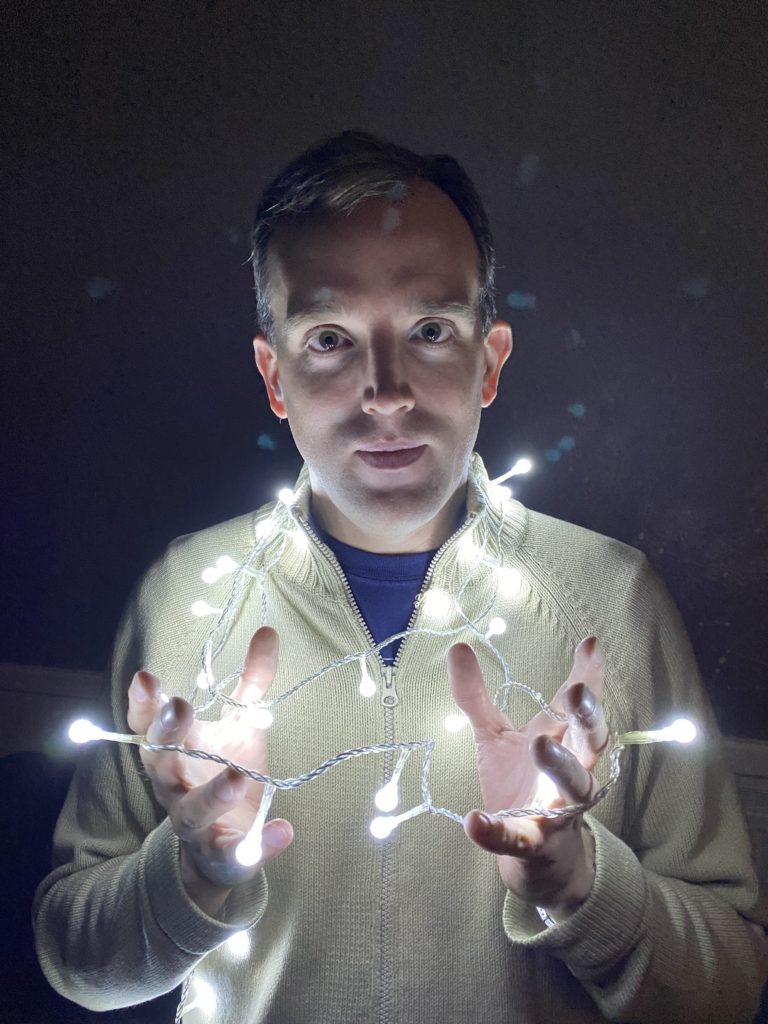
Going One Step Beyond: left to right, Liz Quinlan, Chris Meadley, Stuart Green, director Jon Mills, Jess Murray and Pamela Gourlay
THE Direct Approach is York Settlement Community Players’ scheme to support first-time or emerging directors, but in this case it is giving a boost to the writer too.
Jon Mills steps into the director’s chair after making his mark already as a filmmaker, script writer, theatrical prop and set designer and producer of promo videos for YSCP shows.
Likewise, fellow polymath Miles Salter adds play writing to his skills as a poet, songwriter, band frontman, journalist, podcaster and festival director.
One Step Beyond has its roots in Salter’s application for a York Theatre Royal commission for its Love Bites showcase of York creative talent when lockdown was lifted. His monologue, It Must Be Love, was rejected but central character Steve re-emerges in a 45-minute play – it just had to be 45 or 33 – that again takes its title from a Madness hit.
Steve (Stuart Green) goes nuts for the Nutty Boys, still the nuttiest sound around, collecting rarities obsessively, but this could be the vinyl countdown for his marriage to Kerry (Pamela Gourlay), who is doing her nut. Welcome to the house of no fun. The Madness and the maddening.
Married in 1999, the couple is in a rut of routine, now that the children have flown the nest. Steve does pretty much what he likes: she doesn’t like what he does. He feels the same, because each day she packs him off to work with the same sandwiches; every night, she lines up two crackers, little chunks of cheese and a dab of pickle for his final nibble before bed. Steve sees this metronomic behaviour as being controlling. Kerry carries on regardless.
Steve likes to go to record fairs and meet up at the pub with his steady Eddie of a friend, Boring Ryan (Chris Meadley), so named because he is, well, boring.
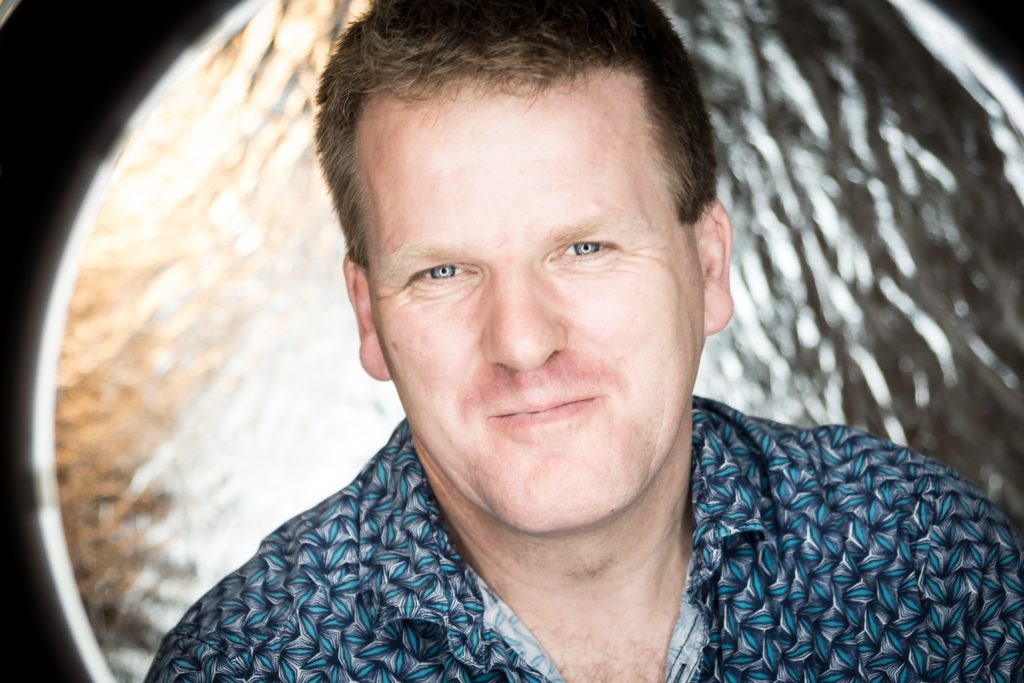
Taking his next step: One Step Beyond writer Miles Salter
Except that maybe he isn’t because he is full of facts that he is wont to drop into the conversation in the quiet moments. Such as? Did you know that the elephant is the mammal that requires the least sleep? You’ll sleep better for knowing that one.
Salter’s play has a stock of such minutiae, coupled with an observant eye that he brings to his poetry too with a humorous flourish that had him worrying that maybe One Step Beyond is too much of a nod to John Godber’s combative northern plays and Nick Hornby’s culturally savvy southern books. Yes, he shares their ear for fractious dialogue and eye for telling detail, but Salter’s humour is his own.
Boring Ryan, for example, is a collector of trouser presses, forever advocating their value and recommending their purchase to all and sundry. Cue a Baggy Trousers gag that is beautifully timed.
Steve is essentially contented; Kerry, discontented, because he is contented. She is sharper of mind, unfulfilled, bored, and, truth be told, Steve would annoy any partner.
This can go only one way: off to the marriage guidance counsellor they trudge, Steve more reluctantly, but at least he turns up. Counsellor Marcia (Liz Quinlan) emerges as the one-woman Greek chorus of the piece, stepping out of scenes to break down the fourth wall in candid direct address. She’s a realist, but one drawn to the bright side of the road like Van Morrison.
Some of Salter’s best writing comes from this ostensibly dispassionate observer, whose role is to steer discussion, to keep order, to ensure equal say, but not to judge (but passes her thoughts on to the audience instead). He wrote the part initially for a Marcus, not a Marcia, but it wholly suits being played by Quinlan – a boon for smart casting by Mills.
Faced by such negativity, like batteries connected the wrong way, Marcia seeks to find a way for Steve and Kerry to re-energise the lost spark, only for them to explode. Comedy on a tightrope, always better that way, when something is at stake.
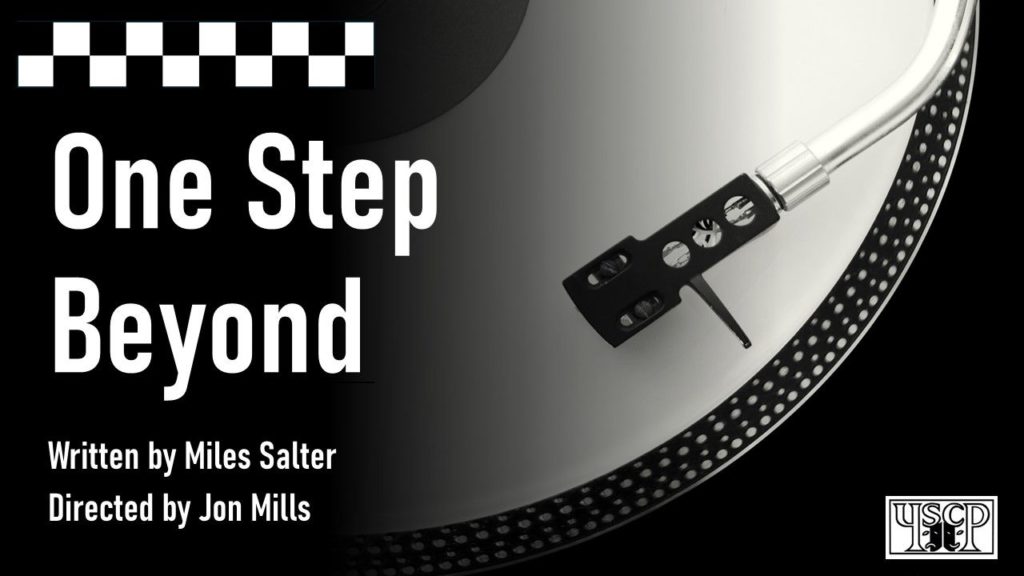
The poster artwork for York Settlement Community Players’ One Step Beyond
Time for a time out, a re-set. Kerry takes up pottery, the cue for a lovely, calming cameo in stripes, polka dots and headband by Jess Murray’s ceramics tutor Jen, “exuding warmth – like a Zen hot water bottle,” as Salter put it in his character profile. Steve, meanwhile, writes a poem: the cue for another dip into Madness.
Salter manages that trick of making the dislikeable and unreasonable – selfish nerd Steve, overbearing Kerry – very watchable in Green and Quinlan’s performances, and as can be the case with writers, there is something of him in each of the characters, even the Zen Jen.
Ultimately, the Marcia/Marcus and Zen Jen in him win out, encouraging us to do exactly what the title says: go that One Step Beyond, as he applies the writer’s principles of “Make’em laugh (plentifully); make’em cry (not so much here); make’em wait (for that closing pay-off line).
Mills’s direction is suitably playful, not least in his use of cartoon imagery on a screen that depicts a row of houses for domestic scenes and the football scores on rotation on the pub telly.
I could say it would be madness to miss One Step Beyond, but given that all three performances have sold out, let’s say you will be mad at yourself for not booking earlier if you have missed out on a ticket.
York Settlement Community Players present One Step Beyond, The Wolfe Room, Black Swan Inn, Peasholme Green, York, tonight, 7.30pm, SOLD OUT.
The next Direct Approach plays will be in September at the Black Swan Inn. More details to follow.


